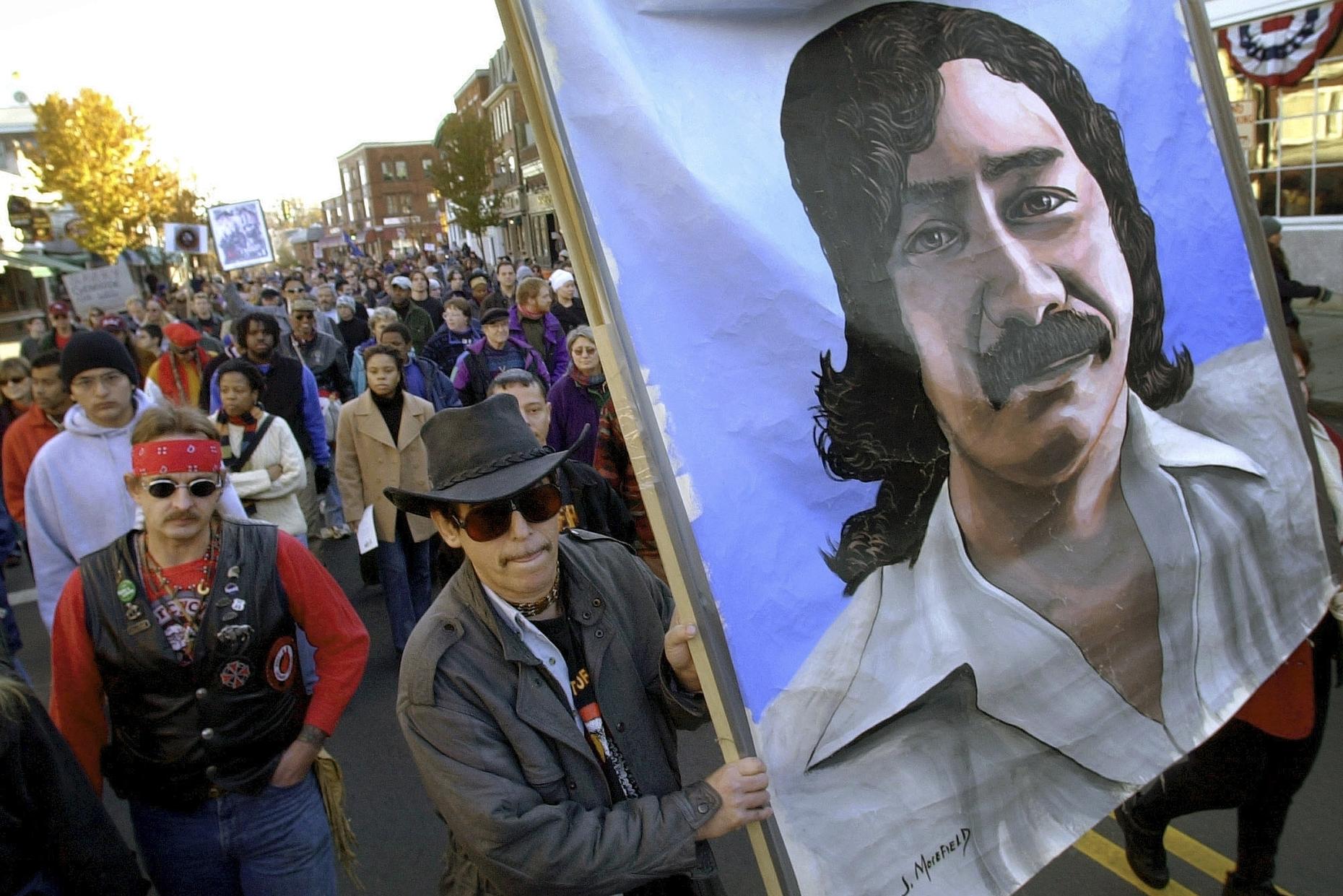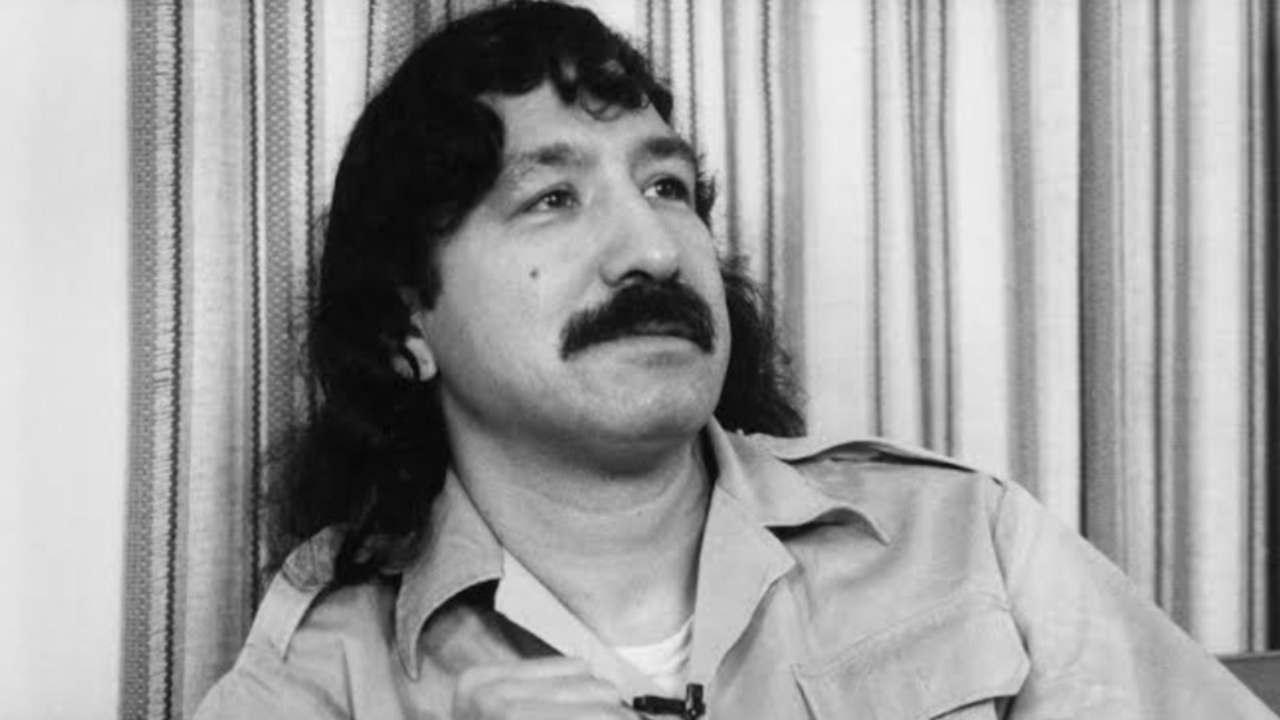The Leonard Peltier Case: Unveiling a Nation's Dark Secret
The Leonard Peltier case is one of the most infamous and intriguing cases in American history, shrouded in controversy and fueled by intense debate. Peltier, a Native American activist and member of the American Indian Movement (AIM), was wrongly convicted of the murders of two FBI agents in 1975, a crime he vehemently denies. This comprehensive overview delves into the complexities of the case, shedding light on the events leading up to the trial, the questionable investigation, and the ongoing struggle for justice and truth.
The Leonard Peltier case is often described as a symbol of government oppression, with many labeling it a classic example of a wrongful conviction. While the facts of the case are undeniable, the nature of the events that unfolded raises more questions than answers. The FBI's tactics during the investigation, the questionable handling of evidence, and the uneven application of the law have all contributed to widespread skepticism about Peltier's guilt.
The American Indian Movement (AIM) was founded in 1968 by Dennis Banks and Russell Means, with the aim of promoting Native American rights and self-determination. Peltier joined AIM in 1970 and quickly became an influential figure within the organization. However, his involvement in the movement also drew the attention of the FBI, which had a history of surveillance and intimidation of Native American activists.
On June 5, 1975, FBI agents William Stanley and Jack Coler struggled with two unarmed Native American men, Arthur Bach manoeuver and Richard Marshall, on a desolate lakeshore in the northern Minnesota wilderness. The incident escalated into a violent confrontation, resulting in the deaths of both agents. The FBI promptly launched an investigation, leading to the arrest of Leonard Peltier, who was accused of murder and conspiracy.
Pre-Trial Proceedings
The pre-trial proceedings of the Peltier case were marred by controversy and irregularities. The FBI's investigation was characterized by coercive tactics, including the use of informants and the intimidation of witnesses. Several high-ranking government officials, including the Attorney General, Bill Simon, were accused of withholding exculpatory evidence, including the transcript of the interrogation of John Hitch, a key witness.
The trial itself was also marred by inconsistencies and questionable evidence. The prosecution's case relied heavily on the testimony of unreliable witnesses, including Hitch and another informant, John Merryman. The defense team, led by Edward Maibach, highlighted the dubious nature of the evidence and the FBI's coercive tactics.
The Disappearance of John Hitch
John Hitch, a key witness for the prosecution, disappeared from the scene in the days following the shooting. His disappearance raised questions about the FBI's handling of the investigation and the credibility of their evidence. The FBI claimed that Hitch had a nervous breakdown and was subsequently institutionalized, but many believe that he was silenced to prevent him from revealing more about the events leading up to the shooting.
The Existence of Exculpatory Evidence
In 1999, the Justice Department admitted that they had withheld evidence from Peltier's trial, including a transcript of Hitch's interrogation. The transcript revealed that Hitch had been questioned about his role in the shooting and had claimed that he had been coerced by the FBI. The transcript also showed that Hitch had maintained that he had not witnessed Peltier at the scene of the crime.
Conviction and Imprisonment
Despite the questionable nature of the evidence and the irregularities in the investigation, Peltier was convicted of two counts of murder and conspiracy. The sentence was commensurate with the crime, with Peltier receiving two consecutive life sentences. He was subsequently imprisoned at the Leavenworth federal penitentiary, where he has spent over 40 years.
Peltier's Appeal and the Fight for Justice
Peltier's appeal was met with resistance from the government, which argued that the evidence against him was sufficient to secure his conviction. In 2007, the US Supreme Court rejected Peltier's appeal, upholding his conviction. However, the case continues to draw attention and support from human rights organizations and Native American groups.
The Renewed Push for Justice
In recent years, the Peltier case has received renewed attention, with many calling for his release or a new trial. In 2013, the National Association for the Advancement of Colored People (NAACP) called for Peltier's release, citing concerns about racial bias in the justice system. In 2017, a group of high-ranking government officials, including former Attorney General Robert Kennedy, signed a letter calling for Peltier's release or a new trial.
The Leonard Peltier Case Today
The Leonard Peltier case remains a powerful symbol of government oppression and a reminder of the ongoing struggles faced by Native American communities. While Peltier's conviction has been upheld, the controversy surrounding his case continues to draw attention and inspire calls for justice and truth. As the nation continues to grapple with issues of racial bias, police brutality, and government accountability, the Peltier case serves as a reminder of the importance of ensuring justice and equality for all.
Possible Explanations and Theories
The events surrounding the Peltier case have sparked numerous theories and explanations, including:
- The FBI's Coercive Tactics: Many believe that the FBI used coercive tactics to obtain evidence from witnesses and intimidate Peltier.
- The Disappearance of John Hitch: Hitch's disappearance has raised questions about the FBI's handling of the investigation and the credibility of their evidence.
- The Exculpatory Evidence: The existence of exculpatory evidence, including the transcript of Hitch's interrogation, has sparked debate about Peltier's guilt.
- **The Questionable Conviction
Ingrid Harbaugh
Karlanenio Crime Pos
Dwayne Wayans
Article Recommendations
- Understandable Have A Niceay
- Nikki C
- Cinemas
- Karen Finney Husband
- Michael Lavon Robinson
- Kari Lakethnicity
- Abby Phillipalary
- Rebecca Pritchard
- Noah Galvin
- I Want Water



